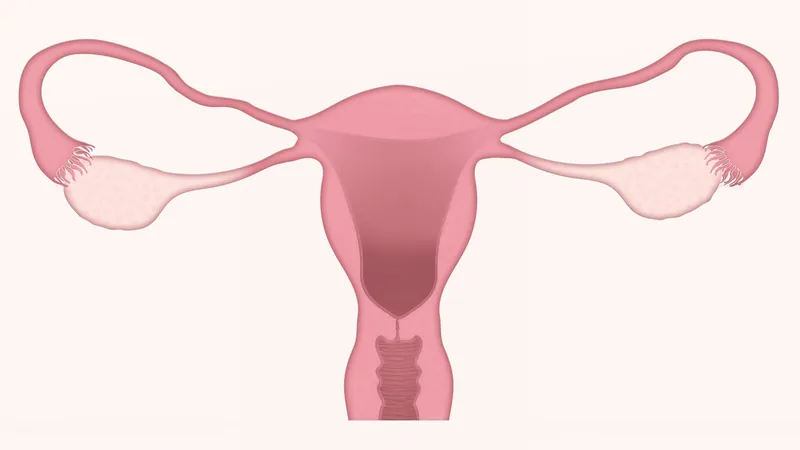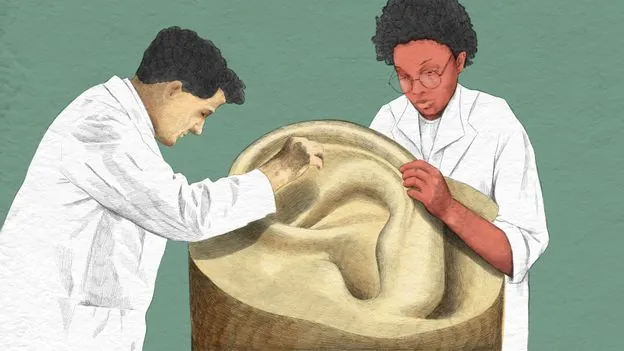
Unleashing the Power of Gut Microbes: Can Bile Acids Combat Cancer?
2025-04-16
Author: Wei Ling
Transformative Gut Microbes: The Link to Cancer Immunity
Groundbreaking new research from Weill Cornell Medicine reveals that your gut bacteria are not just passive residents; they actively transform bile acids derived from cholesterol into powerful metabolites that enhance anti-cancer immunity. This study—published in the journal 'Cell'—unveils the astonishing ability of these microbes to block androgen signaling, a critical pathway involved in tumor growth.
Unexpected Discoveries: A Scientific Game-Changer
Dr. Chun-Jun Guo, a leading immunology professor, expressed his surprise at the findings: "We've uncovered a completely new way that bile acids interact with the androgen receptor, a discovery potentially unprecedented in our field." This research, led by an impressive team including Dr. Wen-Bing Jin and Dr. Leyi Xiao, reveals that gut bacteria significantly modify bile acids, changing their chemical structure and, consequently, their biological function.
From Bile Acids to Tumor Combatants: The Research Breakdown
Primary bile acids, produced by the liver, normally travel to the gut where they undergo structural changes thanks to diverse microbial populations. Researchers explored these modifications to understand their implications better, discovering over fifty new bile acid molecules altered by gut bacteria—many never identified before. With these findings, exciting questions arose about how these modified bile acids could influence hormone receptors linked to sex hormones like testosterone and estrogen.
Astonishing Findings: Bile Acids as Androgen Antagonists
What started as a wild hypothesis turned into reality—the researchers found that one of the newly identified bile acids blocks the androgen receptor. Testing 44 previously characterized bile acids, they uncovered three more with the same capability. This discovery is invaluable, raising questions about the interactions between these modified bile acids and specific cells affected by them.
Revolutionizing Cancer Therapy: T Cell Activation
The androgen receptor’s role extends beyond development; it's pivotal in certain immune cells responsible for fighting cancer. The researchers hypothesized that microbiota-modified bile acids could replicate the receptor-blocking effect, enhancing the immune response. In experimental trials with bladder cancer in mice, the results were nothing short of miraculous—these modified bile acids significantly boosted the activity of CD8 T cells, which are crucial for tumor destruction.
Future Prospects: A New Avenue in Cancer Treatment
This research not only reveals the integral relationship between humans and their gut microbiota but also shines a light on how harnessing microbial activity may shape future cancer therapies. Potential strategies could include administering targeted gut microbes to enhance immune responses or introducing anti-cancer bile acids as a therapeutic measure. The researchers remain optimistic about their future applications in human treatments, envisioning these compounds as vital components to amplify existing cancer therapies.
Unraveling the Mysteries: Diet, Microbiota, and Health
With such promising findings, critical questions persist: What role does diet play in modulating microbiota and subsequently the production of these bile acids? Additionally, what are the broader physiological implications of these bile acids in healthy individuals? The team plans to delve deeper into these aspects, aiming to fine-tune the production and release of beneficial bile acids through advanced genetic engineering techniques.




 Brasil (PT)
Brasil (PT)
 Canada (EN)
Canada (EN)
 Chile (ES)
Chile (ES)
 Česko (CS)
Česko (CS)
 대한민국 (KO)
대한민국 (KO)
 España (ES)
España (ES)
 France (FR)
France (FR)
 Hong Kong (EN)
Hong Kong (EN)
 Italia (IT)
Italia (IT)
 日本 (JA)
日本 (JA)
 Magyarország (HU)
Magyarország (HU)
 Norge (NO)
Norge (NO)
 Polska (PL)
Polska (PL)
 Schweiz (DE)
Schweiz (DE)
 Singapore (EN)
Singapore (EN)
 Sverige (SV)
Sverige (SV)
 Suomi (FI)
Suomi (FI)
 Türkiye (TR)
Türkiye (TR)
 الإمارات العربية المتحدة (AR)
الإمارات العربية المتحدة (AR)